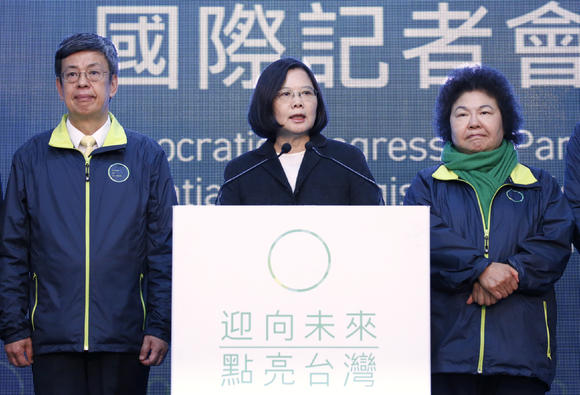Memo #377
By: Timothy S. Rich – timothy.rich[at]wku.edu and Lucas Knight – lucas.knight078[at]topper.wku.edu

 Twelve countries comprising nearly 40 percent of the global economy signed onto the Trans-Pacific Partnership (TPP) in February. Taiwan’s president-elect Tsai Ing-wen of the Democratic Progressive Party (DPP) has indicated her support for joining, yet persuading the Taiwanese public may take additional work.
Twelve countries comprising nearly 40 percent of the global economy signed onto the Trans-Pacific Partnership (TPP) in February. Taiwan’s president-elect Tsai Ing-wen of the Democratic Progressive Party (DPP) has indicated her support for joining, yet persuading the Taiwanese public may take additional work.
How such trade agreements are presented to the public will largely dictate public support and the extent to which the Tsai administration will be able to pursue TPP entry. For example, proponents’ claims about economic growth may fall on deaf ears if opponents target their message to domestic producers already worried about increased competition and unemployment. Similar concerns occurred in Taiwan over the Economic Cooperation Framework Agreement (ECFA) with China in 2010.
A recent survey conducted through National Chengchi University’s PollcracyLab suggests how much media effects matter. In the web survey, Taiwanese were presented at random different explanations of the TPP, simulating media framing, and then asked whether they supported the TPP. The first stated that the TPP was a free trade deal between the US and 11 other countries. The second focused on the potential gains associated with the TPP (e.g. economic growth, poverty reduction, innovation and competitiveness). The third focused on potential cons (e.g. increases in the cost of medicine and income inequality as well as environmental degradation). The fourth included both pros and cons. The survey found those receiving the generic and positive versions were more supportive of the TPP, while support fell among those receiving the negative and, to a lesser extent, the balanced version. Demographic factors and partisanship also influenced perceptions, yet differences based on framing endured.
Worse, despite the fact that Tsai has indicated support for joining the TPP, only 8.1% of respondents believed that she held this position. Such confusion is consistent with two factors: an assumption that Tsai opposed the TPP since the outgoing president, Ma Ying-Jeou of the Kuomintang (KMT) supports entry, and conflating earlier DPP opposition to ECFA to the TPP as well. Nor did the TPP weigh heavily in campaign rhetoric, contributing to such ignorance.
The survey suggests that many Taiwanese, whether indifferent or unaware, remain persuadable regarding the TPP. Thus how Tsai and the DPP frame media campaigns after the inauguration, and whether opponents offer a compelling counter, will determine whether public opinion turns in their favor.
About the Authors:
Timothy S. Rich is an assistant professor of political science at Western Kentucky University.
Lucas Knight is a sophomore at Western Kentucky University, attending through the Gatton Academy of Mathematics and Science, with an interest in politics and foreign affairs.

President-elect Tsai Ing-wen discusses the importance of Taiwan’s participation in the TPP. January 16, 2016 (Credit: Shinya Sawai via Nikkei Asian Review).
Links
- Josh Gelernter, “Don’t Let China Bully Taiwan,” National Review, August 21, 2015.
- Richard C. Bush III and Joshua Meltzer, “Taiwan and the Trans-Pacific Partnership: Preparing the Way,” Brookings Institution. January 2014.
- Nicholas Consonery, “What Taiwan’s Elections Mean for China’s Economic Future,” Fortune, January 19, 2016.
- Joshua Kurlantzick, “The Philippines, Thailand, South Korea, and Taiwan: Joining TPP?,” National Interest, June 30, 2015.
- Kevin G. Nealer and Margaux Fimbres, “Taiwan and Regional Trade Organizations: An Urgent Need for Fresh Ideas,” Asia Policy 21: 67-82.
Related Memos:
See our other memos on Taiwan.